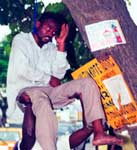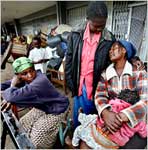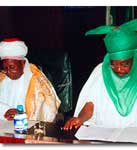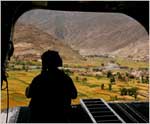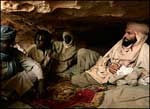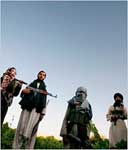The Observer:
These documents, which form a dossier several inches thick, are the main source for the facts in this article. They suggest that while the eyes of the world have been largely averted, America’s ‘war on drugs’ has moved to a new phase of cynicism and amorality, in which the loss of human life has lost all importance – especially if the victims are Hispanic. The US agencies and officials in this saga – all of which refused to comment, citing pending lawsuits – appear to have thought it more important to get information about drugs trafficking than to stop its perpetrators killing people.
The US media have virtually ignored this story. The Observer is the first newspaper to have spoken to Janet Padilla, and this is the first narrative account to appear in print. The story turns on one extraordinary fact: playing a central role in the House of Death was a US government informant, Guillermo Ramirez Peyro, known as Lalo, who was paid more than $220,000 (£110,000) by US law enforcement bodies to work as a spy inside the Juarez cartel. In August 2003 Lalo bought the quicklime used to dissolve the flesh of the first victim, Mexican lawyer Fernando Reyes, and then helped to kill him; he recorded the murder secretly with a bug supplied by his handlers – agents from the Immigration and Customs Executive (Ice), part of the Department of Homeland Security. That first killing threw the Ice staff in El Paso into a panic. Their informant had helped to commit first-degree murder, and they feared they would have to end his contract and abort the operations for which he was being used. But the Department of Justice told them to proceed.
Here.

